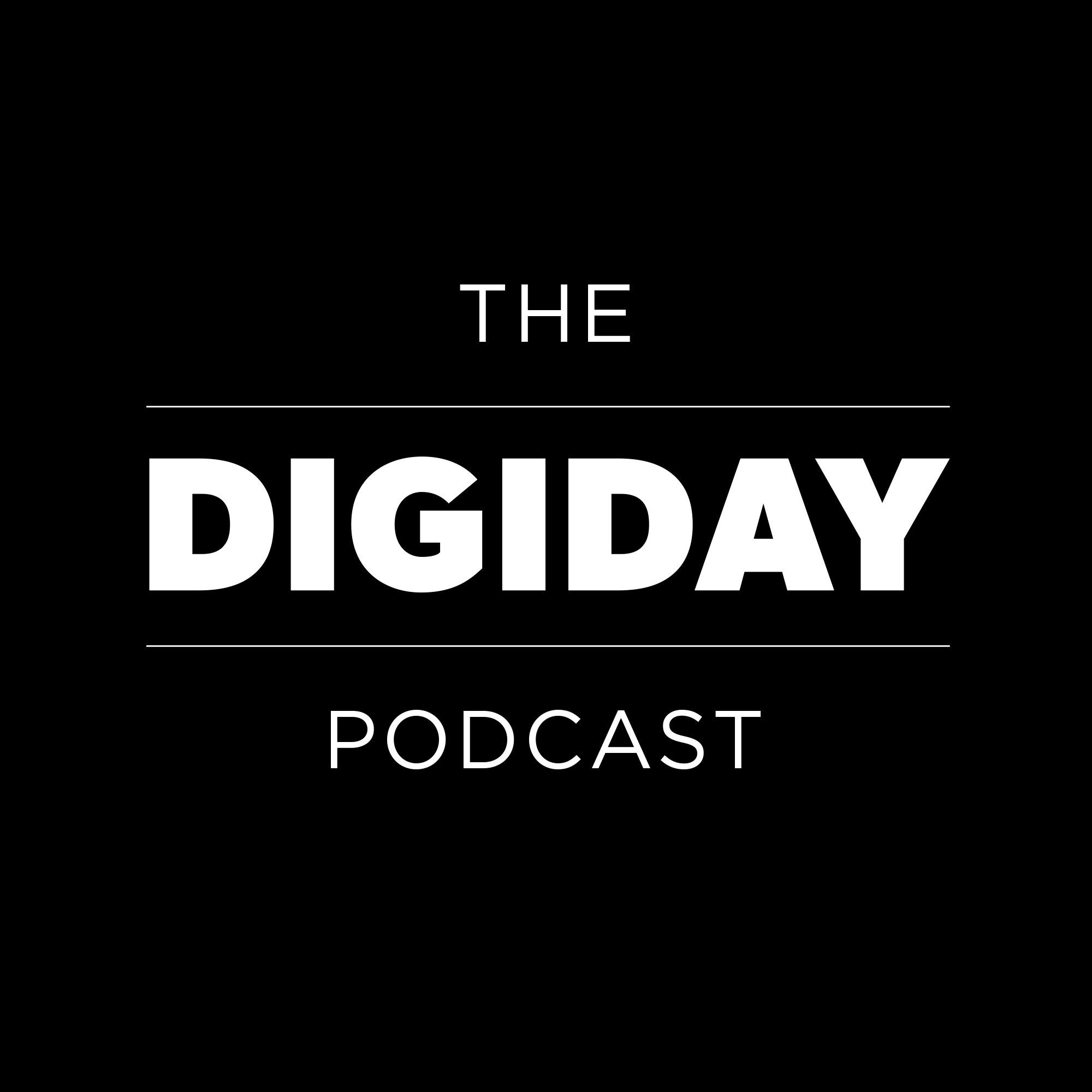

The Digiday Podcast
Digiday
The Digiday Podcast is a weekly show on the big stories and issues that matter to brands, agencies and publishers as they transition to the digital age.
Episodes
Mentioned books

Nov 20, 2018 • 32min
CBS Interactive’s Jim Lanzone: VC-funded digital media companies were sexy because they were new
Digital-only media brands with millions of dollars in venture capital funding have gotten a lot of attention. However, slowly but surely, they’re hitting a wall. And CBS is capitalizing. Jim Lanzone, CEO and President of CBS Interactive, discusses the opportunity in OTT, original programs, reducing reliance on advertising and more on this episode.

Nov 13, 2018 • 29min
Bauer Media Group's Steven Kotok: If we’re gonna make a big bet, it should be in women’s service
As the end of 2018 approaches, we're also coming to the end of an era of VC-funded media companies, perhaps because the industry was not conducive for the growth demanded by venture capitalists. Steven Kotok, CEO and President of Bauer Media Group USA, says that was never the ideal model anyway. Kotok discusses focusing on the reader, the business from the newsstands, big bets in 2019 and more on this episode.

Nov 6, 2018 • 35min
BBC’s Jim Egan: Ad-supported news operation is sustainable but not future-proof
This year the buzz has been around subscriptions. At the most recent live podcast event for Digiday Plus members, BBC Global News CEO Jim Egan said that they're thinking about a reader revenue strategy but for now, bbc.com is an entirely ad-supported property. Egan explores the ins and outs of relying on an ad model, relationships with social media platforms, the advertiser reluctance to appear next to news content and more.

Oct 30, 2018 • 28min
Industry Dive's Sean Griffey on building a $22 million media business with no venture capital
Industry Dive, an online-only B2B company based in Washington D.C., is a good proof point that the sky is not falling for all "ad-dependent" media. Founder & CEO Sean Griffey discussed the reasons why he wants to stick to the ad model for Industry Dive, stretching brands across the several industries they cover and their ability to make measured bets in their business.

Oct 23, 2018 • 26min
PopSugar’s Brian Sugar on getting profitable and focusing on staying profitable
For female media brand PopSugar, the name of the game now is profits. The 12-year-old company has finally gotten into the black, and it intends to stay there, CEO Brian Sugar said on this week's episode of the Digiday Podcast.

Oct 16, 2018 • 38min
Bloomberg’s Justin Smith: We’re projecting 15-20 percent growth
Bloomberg is not immune to the pressures of old business models, but it does have a plan. It launched a subscription offering, struck a partnership with Twitter for TicToc by Bloomberg and created a new event platform to offset the decline in digital advertising. This year, revenue growth is in the double digits. In our latest podcast, Smith discussed how TicToc by Bloomberg achieved profitability in its first year, the misnomer around the industry-wide pivot to subscriptions and why there's still room to grow in events.

Oct 9, 2018 • 34min
Skift’s Rafat Ali: 'B2B has always been about diversifying revenue streams'
Skift CEO Rafat Ali is vocal about his beliefs about building sustainable media businesses -- and the advantages of focusing on more narrow niches than broad, general audiences. Skift is now six years old, with 60 people and revenue that’s set to cross $10 million this year, Ali said. As the company grows, Ali said he focuses more on the long term. He talks about the media trends he loves and especially the ones, he hates, going into the wellness space, why he’s making an acquisition and the recipe for success in media today.

Oct 2, 2018 • 35min
CoinDesk's Kevin Worth: In the GDPR era, crypto may help publishers rethink audience and revenue
CoinDesk CEO Kevin Worth discusses how they approach the coverage of crypto and where the road lies ahead.

Sep 25, 2018 • 46min
The Guardian's David Pemsel: We can't be complacent
The Guardian has stuck to its “open” mantra by asking readers for donations instead of putting up a paywall. They have 800,000 paying members, putting The Guardian on the path to profitability. The Guardian CEO David Pemsel says while this model is working at the moment, they can’t get complacent and assume that this will be recurring reader revenue.

Sep 18, 2018 • 29min
Roku’s Scott Rosenberg: Cable operators have to innovate
TV is changing in front of our eyes. From cord-cutters to cord-nevers, people are increasingly are getting their TV through streaming services like Apple TV or Roku. The future of cable TV has been in flux but Roku’s gm of Roku’s platform business says the cable operators are here to stay.


